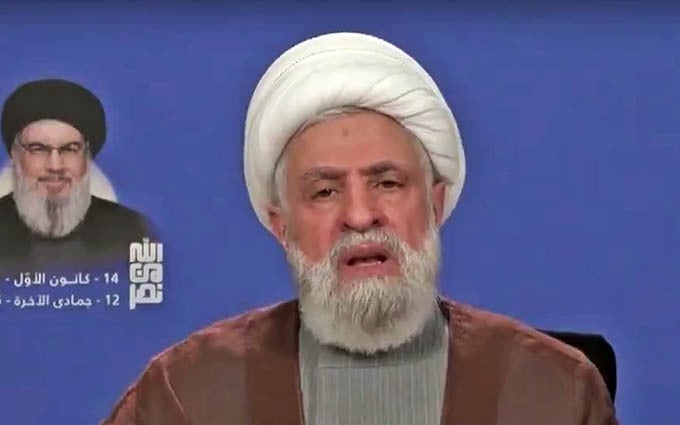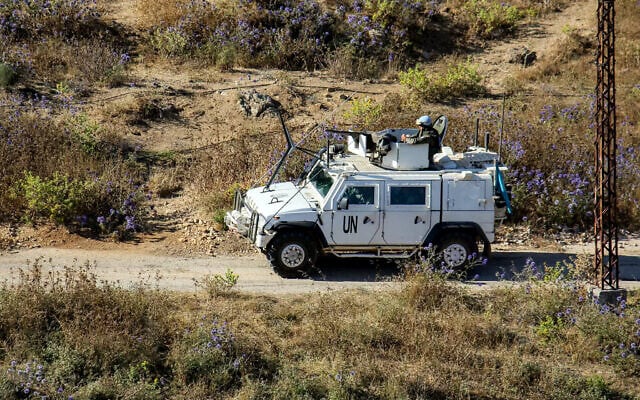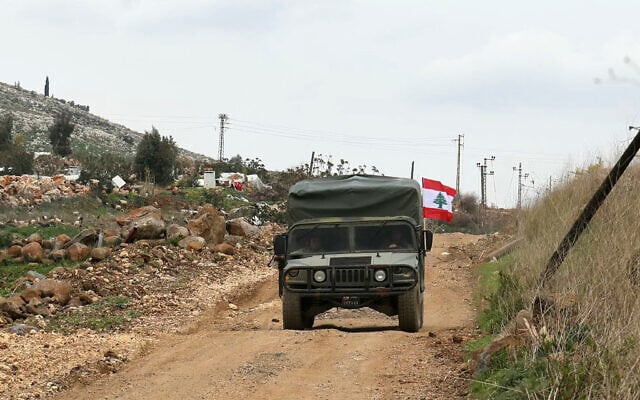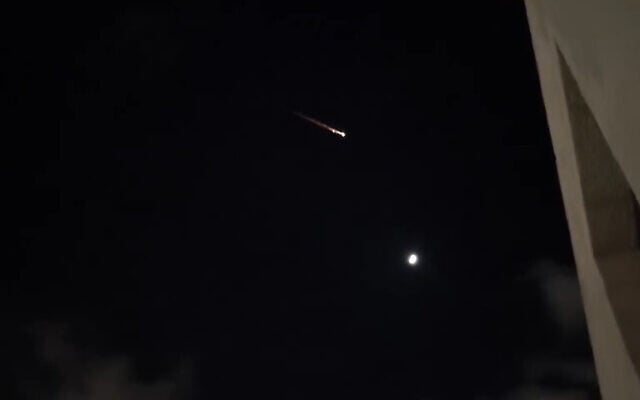



BEIRUT, Lebanon — Hezbollah leader Naim Qassem said Sunday his group would not surrender or lay down its weapons in response to Israeli threats, despite pressure from Lebanon’s Western-backed government demanding the terror group disarm.
The response came after Lebanese leaders sought the group’s input as it formulates an answer to a proposal raised by US envoy Tom Barrack that would reportedly see Israel halt attacks on Lebanese soil in exchange for Hezbollah giving up its arms.
“This threat will not make us accept surrender,” Qassem said in a televised speech to thousands of his supporters in the southern suburbs of Beirut, a Hezbollah stronghold, during the Shiite Muslim religious commemoration of Ashura.
Qassem, who succeeded longtime leader Hassan Nasrallah after Israel killed him in September, said the group’s fighters would not abandon their arms and asserted that Israel’s “aggression” must first stop.
“How can you expect us not to stand firm while the Israeli enemy continues its aggression, continues to occupy the five points, and continues to enter our territories and kill?” Qassem said in his video address. “We will not be part of legitimizing the occupation in Lebanon and the region. We will not accept normalization [with Israel].”
Israel has regularly carried out drone strikes in Lebanon it says are aimed at operatives belonging to the Iran-backed group, despite a ceasefire in November that followed over a year of conflict, and two months of open war, sparked by daily Hezbollah rocket, missile and drone attacks on northern Israel starting on October 8, 2023.
It has also kept troops deployed at five border points inside Lebanon it deemed strategic.
Barrack was expected in Beirut on Monday. During the visit, Lebanese authorities are due to deliver a response to Barrack’s proposal for Hezbollah to be disarmed by the end of the year, according to a Lebanese official who spoke on condition of anonymity.
Disarmament would end Israeli strikes targeting Hezbollah members and unlock funds to rebuild parts of Lebanon destroyed by Israeli forces last year, sources with knowledge of Barrack’s proposal told Reuters. It would also include Israel pulling out of Lebanon, according to the Associated Press.
“America’s equation asking us to choose between being killed or surrender does not concern us and we will cling to our rights,” Qassem said in his speech, according to an English-language report from the Naharnet outlet.
In response to those who ask why the group needs its missile arsenal, Qassem said: “How can we confront Israel when it attacks us if we didn’t have them? Who is preventing Israel from entering villages and landing and killing young people, women and children inside their homes unless there is a resistance with certain capabilities capable of minimal defense?”
Lebanese authorities say they have been dismantling Hezbollah’s military infrastructure in the south, near the Israeli border.
Israel says it reserves the right under the ceasefire agreement to act against imminent threats by Hezbollah, and accuses the terror group of ceasefire violations, which it denies.
Jerusalem also says that Beirut is not doing enough to disarm the group in southern Lebanon.
On Saturday, a strike that Lebanese officials attributed to Israel killed one person and injured another.
According to the ceasefire agreement, Hezbollah is to pull its fighters back north of the Litani River, some 30 kilometers (20 miles) from the Israeli frontier.
Beirut has insisted that the Lebanese Army maintain a monopoly on arms, but is thought to lack the power to forcibly disarm Hezbollah or various other militias.
Yemen’s Houthis, another part of Iran’s largely weakened proxy network, also vowed to continue fighting Israel Sunday, claiming an overnight ballistic missile attack targeted “an airport in the Jaffa area.”
The Israel Defense Forces said around 3 a.m. that it successfully intercepted a missile fired from Yemen after activating air raid sirens in the Dead Sea region.
A spokesperson for Yemen’s Iran-aligned Houthi movement said later that the group would continue launching missiles at Israel until the end of the war in Gaza.
The Iranian proxy began attacking Israel and maritime traffic in the Red Sea in November 2023, a month after the October 7 Hamas massacre.
Since March 18, when a ceasefire ended and the IDF resumed its offensive against Hamas in the Gaza Strip, the Houthis have launched more than 50 ballistic missiles and at least 13 drones at Israel. Most have been intercepted or fallen short.
The group largely halted its attacks on Israel during the 12-day war with Iran last month, but has resumed sporadic missile launches since.
In May, a Houthi missile that hit Ben Gurion airport caused several international carriers to temporarily halt service to and from Israel, leading the Houthis to boast of imposing an air blockade on the country.



